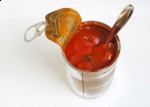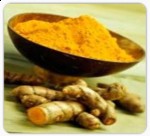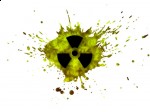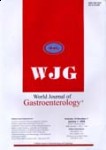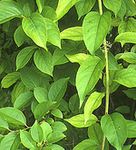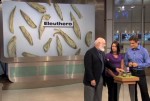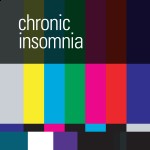 Menopause symptoms such as hot flashes, night sweats, irritability, brain fog and other symptoms seem to be considered the norm for women over the age of 50, yet this is not true for women around the globe. Researchers from the Department of Integrated Health at Westminster University polled 1,000 British women ages 45 to 55 and compared their answers to those of women from the U.S., Canada, Japan and China. The conclusion was that Japanese and Chinese women suffer the least amount of menopause symptoms. British women suffer the most and Americans are somewhere in between.
Menopause symptoms such as hot flashes, night sweats, irritability, brain fog and other symptoms seem to be considered the norm for women over the age of 50, yet this is not true for women around the globe. Researchers from the Department of Integrated Health at Westminster University polled 1,000 British women ages 45 to 55 and compared their answers to those of women from the U.S., Canada, Japan and China. The conclusion was that Japanese and Chinese women suffer the least amount of menopause symptoms. British women suffer the most and Americans are somewhere in between.
If you want to know how to turn down your body’s internal “thermostat” you are in the right place. Alternative medicine, including food therapy, is a viable option for managing menopause symptoms.
What causes this disparity between menopausal women in the East and West? In Japan, Malaysia, Hong Kong, Taiwan and China women do not generally seek medical attention for menopause symptoms.9 The reasons for these cultural differences are complex. Certainly diet and lifestyle choices play a key role. The question is why don’t women in these cultures need Hormone Replacement Therapies (HRT) or medical treatments the way that the majority of Western women do?
The last year has been a confusing time with medical flip-flops on the benefits and dangers of artificial hormones. I see more and more women who are giving up on trusting research produced by the health care establishment and looking to alternative medicine for answers.
Not only is it difficult to stay keep up with the latest menopause drug treatment information, but much too often this advice is influenced by drug companies or doctors who fail to disclose their ties to study outcomes. One truth every doctor knows is that medicines have risks. Medicines should be prescribed only when the benefits outweighs the risks, including the risks of side effects which may not show up until years later. Healthy diet and lifestyle therapies have no risks. Cooking with Chinese herbs and incorporating food therapy have been done for centuries and have absolutely no known risks.
This article is part two on the subject of alternative medicine for menopause. Part one (see it here) explained how Traditional Chinese Medicine (TCM) views menopause. TCM recognizes menopause as part of the natural aging process and is often termed Kidney Yin Deficiency. The manifestations of aging include gray hair, dryness and the end of menstruation — in other words, signs the kidney energy is waning.
TCM views the kidney energy as sustaining the metabolic process and decreases naturally as we age. When the balance of kidney yin and yang energy is “upset,” symptoms such as hot flashes and night sweats may appear. Throughout Asia it is Chinese herbs and food that are most commonly used to gently tonify the kidney energy and restore the balance between yin and yang. Acupuncture is also used to restore this balance and studies have proven its effectiveness.10 The role of herbal medicine was discussed in part one and I now want to address the roll diet plays in menopause.
It seems Asian cultures understand Hippocrates, the father of medicine’s credo, “Let food be thy medicine and medicine be thy food.” Asian cultures blend four important principals into every meal.
1. Meals consist of varying food temperatures, i.e. peppers are a hot food, seaweed is cold and black beans are warm.
2. A large variety of foods with five flavors are eaten in every meal. The five flavors are sour, sweet, pungent, bitter and salty.
3. Organic (Non-GMO) freshly prepared soy products are eaten nearly every day.
4. An old Chinese Proverb says, “He that takes medicine and neglects diet, wastes the skill of the physician.”
Food Temperatures
Since our goal here is to turn down the thermostat, let’s start the discussion with “cold” foods — or foods that cool us off. This is the same principle applied to eating watermelon on a hot summer day. Asian cultures use food temperatures to balance the body’s needs.
Cold herbs and foods simply cool you off. But the principal is best practiced in combination. Mixing cold foods and warm foods is best. Too much cold food inhibits digestion and may lead to diarrhea. A few of the best cold foods are: cucumber, diakon radish, mung bean, dandelion greens, cabbage, bok choy, cauliflower, celery, carrots and romaine lettuce. Eat a least two servings of these a day for your internal air conditioner to kick into action. Cold fruits include lemon, cantaloupe, grapefruit, mulberry, apples, pears, watermelon, apricots and persimmons.
Five Flavors
Incorporating the five flavors into your meals may be a new concept but is not all that difficult. There are several good books on this subject. One of my favorites is The Tao of Nutrition by Ni and McNease. Bitter foods will help the most for those suffering with menopause symptoms. They operate as an internal air conditioner, because bitter foods disperse heat. Examples of bitter foods include kale, green tea, watercress, turnips, asparagus and tangerine peel. Tangerine peel is used in Chinese herbal medicine and in TCM food therapy. Adding tangerine peel to meat or vegetables helps by promoting the circulation of stomach Qi, (energy) thereby improving digestion. Its bitter and acrid flavor not only helps digestion but relieves indigestion. Tangerine peel strengthens the stomach and works like a carminative to clear excess mucus. (More herbs for menopause here.)
Soy Foods
One interesting cultural advantage for menopausal women in Asia may be the amount of soy or tofu eaten daily. Soy is full of protein, rich in vitamins and enzymes. It’s an isoflavone, a class of phytoestrogen (plant derived compounds) with estrogenic activity.11 Soy has been part of the Asian diet for thousands of years. Unprocessed tofu is made fresh and sold in nearly every market. Soy tofu is eaten in small amounts daily from the time children are very young to the end of their lives.
But, the key here is the soy and tofu they eat is made from “unprocessed and non-gmo” soy beans. Sadly, this is increasingly difficult to find in American stores and nearly all American soy beans are derived from genetically modified organisms (GMO). Not a healthy choice to start with and unfortunately most of our tofu is manufactured through a highly refined process. For this reason, I would not consider soy tofu a healthy food in the U.S. right now.
Refined food products almost always lose their nutritional value after being heated to extreme temperatures. This process kills all of the nutrients and all of the important enzymes which the body needs to digest them. As a result, eating processed American soy tofu can give you terrible gas, bloating and indigestion and even worse, it’s becoming a common allergen. A small serving of soy a couple of times a week won’t harm you, but I recommend eating only fermented and non-GMO soy. Products such as miso, sprouted tofu, soy yogurt and tempeh are my first choice. A little organic soy sauce is also ok . If you can be certain your tofu is organic and unprocessed I would consider it a healthy choice.
Changing the way you look at food according to temperature and taste takes some time. Maybe this is a new concept for you and maybe you’ve never seen some of the foods listed above. Although you may not choose to eat everything on this list, you can certainly eat some.
Tapping into your body’s internal thermostat doesn’t work exactly likethe thermostat on your wall. So, be patient. Be consistent with dietary changes and enjoy the food you eat. Find some recipes you like and bring variety to your diet every day. Incorporate the five flavors of salty, bitter, sour, pungent and sweet into your lifestyle. Chinese medicine uses food therapy full of phytochemicals, vitamins and nutrients to restore vibrant health and balance to the entire person. This therapy has been adopted for thousands of years without any side effects.
What part of your diet will you change to help your menopause symptoms?
References:
1. Women of UK study http://www.ncbi.nlm.nih.gov/pmc/articles/PMC2233879/
2. Lock M. Menopause in Japanese women. Womens Health Iss. 1995;274(16):12-65.
3. Kagawa-Singer M., Kim S., Wu K., Adler S.R., Kawanishi Y., Wongvipat N. Comparison of the menopause and midlife transition between Japanese American and European American women. Med Anthropol Q. 2002;16(1):64-91.
4. Haines C.J., Rong L., Chung T.K.H., Leung D.H.Y. The perception of the menopause and the climacteric among women in Hong-Kong and Southern China. Prev Med. 1995;24(3):245-248. [PubMed]
5. Lam P.M., Leung T.N., Haines C., Chung T.K.H. Climacteric symptoms and knowledge about hormone replacement therapy among Hong Kong Chinese women aged 40-60 years. Maturitas. 2003;45(2):99-107. [PubMed]
6. Chen Y.L.D., Voda A.M., Mansfield P.K. Chinese midlife women’s perceptions and attitudes about menopause. Menopause. 1998;5(1):28-34. [PubMed]
7. Tsao L.I., Chang W.Y., Hung L.L., Chang S.H., Chou P.C. Perimenopausal knowledge of mid-life women in northern Taiwan. J Clin Nurs. 2004;13(5):627-635. [PubMed]
8. Ismael N.N. A study on the menopause in Malaysia. Maturitas. 1994;19(3):205-209. [PubMed]
9. Chim H., Tan B.H.I., Ang C.C., Chew E.M.D., Chong Y.S., Saw S.M. The prevalence of menopausal symptoms in a community in Singapore. Maturitas. 2002;41(4):275-282. [PubMed]
10. Acupuncture for Menopause hot flashes and http://www.ncbi.nlm.nih.gov/pubmed/20060667
11. Linus Pauling Institute at Oregon State University http://lpi.oregonstate.edu/infocenter/phytochemicals/soyiso/




